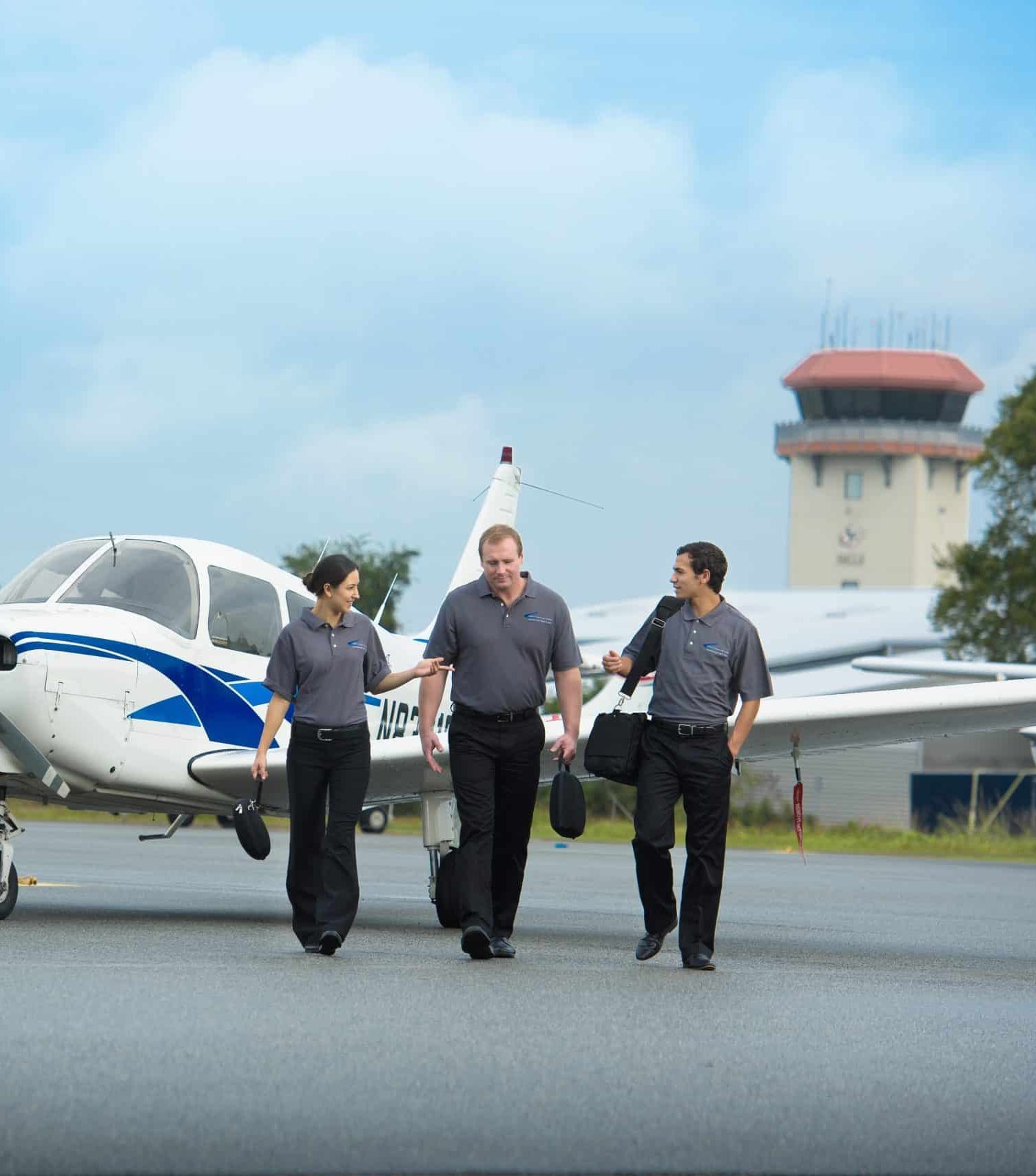Aviation, once synonymous with busy airports, and the responsibilities at-site, is currently undergoing major changes. Technology advancements and a growing emphasis on flexibility remote airline positions are a radical shift in how the industry functions. These jobs allow individuals to work in aviation from the at-home or from remote locations, altering traditional career paths while providing the most unbeatable balance between work and life.

Image credit: flightschoolusa.com
Remote Airline Jobs are on the rise
The aviation sector traditionally has been dominated by positions that require physical presence. This includes pilots, attendants onboard, ground staff as well as customer service reps. Digital technologies have revolutionized how airlines run. The majority of jobs that were once requiring meetings in person are now completed online. From customer enquiries to data analysis, remote work for airlines are now an efficient and viable alternative.
The change isn’t only about ease of use. Remote work is a cost-effective solution for airlines since it cuts down on overhead costs associated with office space. Employees can work remotely that eliminates the need for commutes and promotes work-life harmony. It also provides possibilities for global expansion.
Role of Remote Airline Jobs
Remote airline jobs cover a vast variety of jobs that require a distinct level of expertise and skills. The most prominent jobs include:
Customer Service Representatives Handling questions and complaints as well as managing reservations can be completed virtually. This makes customer service one the most requested remote airline positions.
Revenue Management Analysts operate remotely, using sophisticated analytical tools to optimize ticket prices and revenue streams.
Marketing Specialists: Airlines rely on digital marketing experts to design campaigns to manage social media accounts, and improve online engagement.
Travel Agents: These agents make use of technology to assist clients organize their schedules and even book flights.
IT and Cybersecurity professionals remote-based tasks such as managing IT infrastructure, assisting the airline system and making sure data security is possible.
Remote airline jobs with advantages for flight: Benefits
Remote airline jobs that include benefits for flight are appealing because they combine professional flexibility with traditional benefits of aviation. These roles are becoming more popular for a number of reasons.
Flexible work-life balance: Remote positions allow employees to adjust their work schedules to meet their personal and professional obligations. This leads to increased satisfaction at work.
Cost savings Work from home can eliminate the cost of commuting, which includes meals and transportation. This can lead to substantial savings.
Numerous airlines offer flight benefits for workers who work from home, such as free or discounted flights. This is not just a way to increase employee satisfaction, but provides a variety of travel options.
Global Accessibility: Remote jobs enable professionals to work from a variety of locations, creating a more diverse and diverse workforce.
Airlines need remote workers to be skilled
To succeed in remote airline jobs, certain abilities are necessary:
Technical Proficiency is essential for an efficient remote operation.
Communication Skills: Effective collaboration between teams relies on a solid writing and speaking abilities.
Time Management in a remote setting the ability to plan assignments and stick to deadlines is crucial to achieving success.
Problem-Solving: Remote assignments often require quick thinking, flexibility and the ability to resolve issues without immediate support.
How to Find Remote Airline Jobs
It is crucial to have a plan of action in place before you apply for a remote job at an airline. Here are some tips to help you prepare:
Research Opportunities: Explore job sites for airline careers and remote job boards for jobs that match your interests and skills.
Polish your resume by highlighting experiences from remote, technical skills and relevant certificates.
Make use of networks Join online platforms like LinkedIn to connect with professionals in aviation and find out about opportunities.
Answering questions in a practice session will demonstrate your ability of working independently and managing remote tasks.
Remote Airline Jobs The Future of Remote Airline Jobs
Remote jobs for airlines are expected to continue to be very popular as airlines innovate. Advances in communication technology, automated data analysis, and data analytics allow professionals to be part of the aviation sector from anywhere around the globe.
The rise of remote work represents a shift in the modern workplace, that is focusing on efficiency, flexibility as well as employee satisfaction and more. Remote airline jobs are an excellent alternative for those looking to build a career that isn’t being restricted by traditional job roles.
This type of job allows professionals to enjoy both the benefits as well as the challenges of working remotely. Whether you’re a seasoned aviation expert or someone looking to break into the field, remote airline jobs with flight benefits provide the perfect platform to take your career to new heights.
